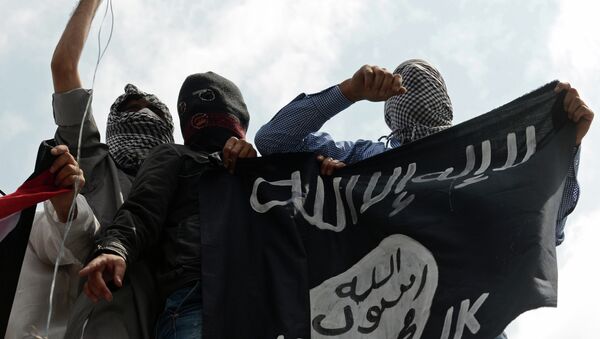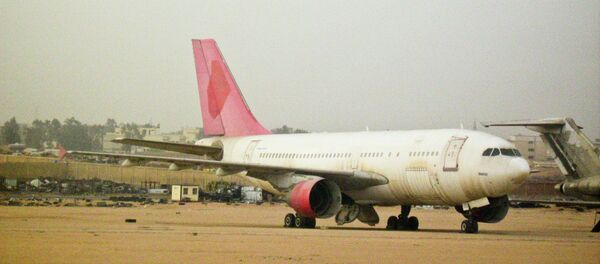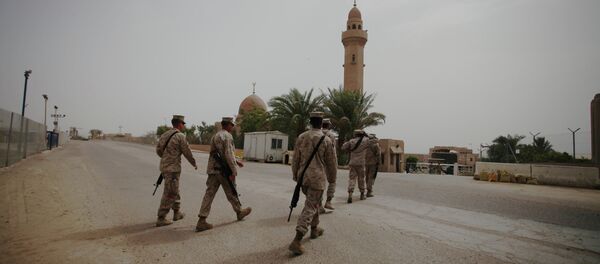Libya and Syria are both facing severe challenges from ISIL, yet the US is once more playing favorites at the expense of the latter. Despite terrorism in Libya obviously being the more pressing threat to Europe’s security, no unilateral intervention against ISIL is even being considered at this point, showing that the West is eager to respect the unpopular legitimate authorities’ desire to empower its armed forces instead.
On the flip side of things, the US and its allies have repeatedly disrespected the popular government in Syria by unilaterally bombing its territory for months, despite ISIL there not being an immediate threat to European security interests, and haven’t even considered for a moment that the Syrian Arab Army (SAA) is the most valuable weapon in the country’s war on terror. This blatant hypocrisy in anti-terror approaches can be clearly attributed to ulterior interests and insincerity in fighting ISIL in Syria.
Big Differences Equal Bigger Hypocrisy
Libya and Syria both have their situational differences, but when compared amongst themselves, the North African state is arguably weaker and less prepared to fight against ISIL, yet it is the Libyan government’s interests that are being accommodated by the West and the Syrian government’s that are being ignored and even countered by them. Here’s a back-to-back comparison that most vividly illustrates their differences:
Libya:
Nonetheless, the Libyan authorities have rejected outside military intervention against this seemingly imminent international threat, and the Western community has complied. Tobruk is now requesting that the arms embargo on the country be lifted and that an international blockade be imposed to prevent arms from entering areas where the government has no control. Although no decision has been made as of yet, the West is listening with open ears and appears ready to abide by the Libyan government’s recommendations.
Syria:
The SAA has insisted that it can handle the terrorist problem on its own, provided that its neighbors do their legal part in preventing the free passage of terrorists and weapons into the country. This has of course not happened, nor has the government’s opposition to unilateral foreign strikes been respected. Throughout the past four years, the West has placed weapons sanctions on Syria, while countries like Russia that provide it with anti-terror material support have been slurred for ‘supporting a dictatorship’.
The Right Way To Fight Terrorism
* Respect for the will and decisions of the democratically elected government
* Eagerness to assist as requested in preventing external elements from aggravating the situation
* Belief that empowerment of the national armed forces is the most effective front line solution
Be that as it may, the West’s attitude to Libya’s War on ISIL may very well change (and rapidly at that), but as it stands, it represents the most effective and legal way to handling terrorism all across the world. The question is, why doesn’t the West behave this way towards Syria?
The ‘Anti-ISIL’ Masquerade
Objectively speaking, there’s nothing that prevents the West from confronting terrorism in Syria according to the same legal and effective guidelines that it’s currently (key word) practicing in Libya. If it was serious about combating ISIL, it could follow the SAA’s recommendations, since it already has an over four-year-long track record in directly fighting terrorists. The weapons sanctions imposed on the popular and democratically elected Syrian government can be immediately lifted, and Turkey and Jordan, which are definitely threatened by ISIL, could step up their border control and make sure no terrorists or weapons pass through to Syria. The so-called ‘anti-ISIL’ coalition could halt its unilateral and uncoordinated strikes in Syria and await further instructions from Damascus, but none of these simple and logical steps are being taken.
As a perfect case in point, reports are now circulating that the foreign-supported ‘moderate opposition’ in Syria (a myth if there ever was one!) will be able to call in RCC airstrikes against ISIL. While they may try to get some external assistance in eliminating their extremist rivals, what’s more likely is that they’ll eventually call for strikes in heavily populated and civilian areas or even directly against the SAA, all ostensibly to defeat ‘ISIL’. Should just one ‘mistake’ like this happen and the SAA rightfully respond to the aggression being unleashed against it and Syria’s citizens, then the RCC won’t hesitate to repeat their 2011 Libyan scenario in Syria (their intent all along) and officially transform the former pearl of the Mideast into its most impoverished and terror-stricken area.





